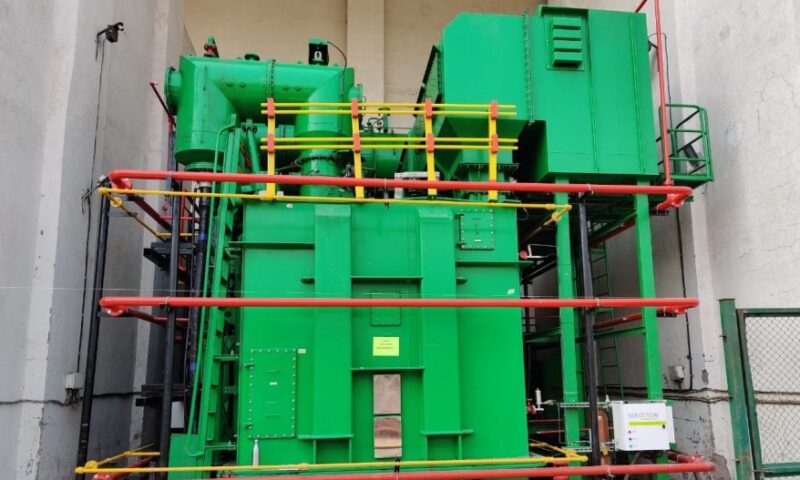Over the past few weeks, some developments towards making the electrical equipment industry “greener” came to light. Despite the fact that India is augmenting its power T&D infrastructure capacity to meet the growing electricity demand, it needs to be continually conscious of the ecological implications.
Two leading power utilities Adani and Tata Power commissioned the country’s largest ecofriendly power transformers. Both these transformers incidentally were put up in Mumbai.
Tata Power commissioned India’s largest natural ester-filled 110/33/22kV, 125 MVA power transformer, in the Mumbai transmission network The transformer has been commissioned at the BKC (Bandra Kurla Complex) receiving station, and was built in active collaboration with Hitachi ABB Power Grids (the supplier of the transformer) and Cargill (the supplier of the natural ester oil)
The natural esters used in these transformers have a high fire point (350°C) and eliminate the risk of fire. The fluid is made from a carbon neutral renewable resource, is biodegradable, nontoxic and nonhazardous in soil and water.
This fluid allows designing the transformer with increased capacity and reduced carbon footprint, making it an ideal solution for congested cities like Mumbai, as opposed to conventional mineral oil-filled transformers.
Adani Mumbai Electricity Ltd (AEML), another power distribution utility in Mumbai, recently commissioned India’s first synthetic ester oil-filled 220kV, 125MVA capacity power transformer in its Mumbai transmission network.
The transformer, supplied by Siemens from its Kalwa factory in Maharashtra, was commissioned at the 220kV Borivali EHV substation in north Mumbai.
Like natural ester oil-based transformers, those with synthetic ester oil also have higher fire point (>300°C), low heat of combustion (30.8 MJ/kg). Moreover, it offers enhanced fire safety, better performance at higher temperature and prolonged life of Insulation paper, and consequently of the transformer itself.
Ester oils, whether natural or synthetic, have better biodegradability as compared with mineral oils. As such, they are very environment-friendly and suit the conditions in urban areas where pollution-mitigation measures are of paramount importance.
Towards an SF6-free world
A recent EU Commission report concluded that fluorinitrile-based gas mixtures may be the only insulating and switching gas alternative to SF6 when space is a constraint.
The transition from conventional air-insulated substations (AIS) to substations using GIS (gas insulated switchgear) was a defining moment in the electrical equipment industry, globally. With land being a prized commodity, the shrinking of the footprint from AIS to GIS substations was dramatic. However, it was subsequently established that SF6 (the gas commonly used in gas-insulated switchgear) was a potential threat to the ecology. As going back to air-insulated gear was not at all a solution, companies began to explore eco-friendlier substitutes to SF6, especially in high-voltage equipment.
In a very significant development, GE Grid Solutions and Hitachi ABB Power Grids Ltd recently announced a non-exclusive, cross-licensing agreement related to the use of an alternative gas to SF6 used in high-voltage equipment.
This alternative, a fluoronitrile-based gas mixture, has a significantly reduced impact on the environment compared to SF6.
Under this landmark agreement between two global leaders in power technologies – both companies will share complementary intellectual property related to their respective SF6-free solutions. This will help accelerate the use of fluoronitrile-based eco-efficient insulation and switching gas in high-voltage equipment as an alternative to SF6.
Also read: TBCB projects see welcome revival after year-long hiatus
Both the ester oil-based transformers and the GE-Hitachi ABB partnership are important developments. It is only a matter of time that eco-friendly electrical equipment will become the norm—without the need for special mention.
(Featured photograph shows the natural ester oil-filled transformer commissioned by Tata Power in Mumbai. The transformer was supplied by Siemens’s Kalwa factory in Maharashtra, while Cargill supplied the natural ester oil.)
The author of this article, Venugopal Pillai, is Editor, T&D India, and may be reached on venugopal.pillai@tndindia.com. Views are personal.

